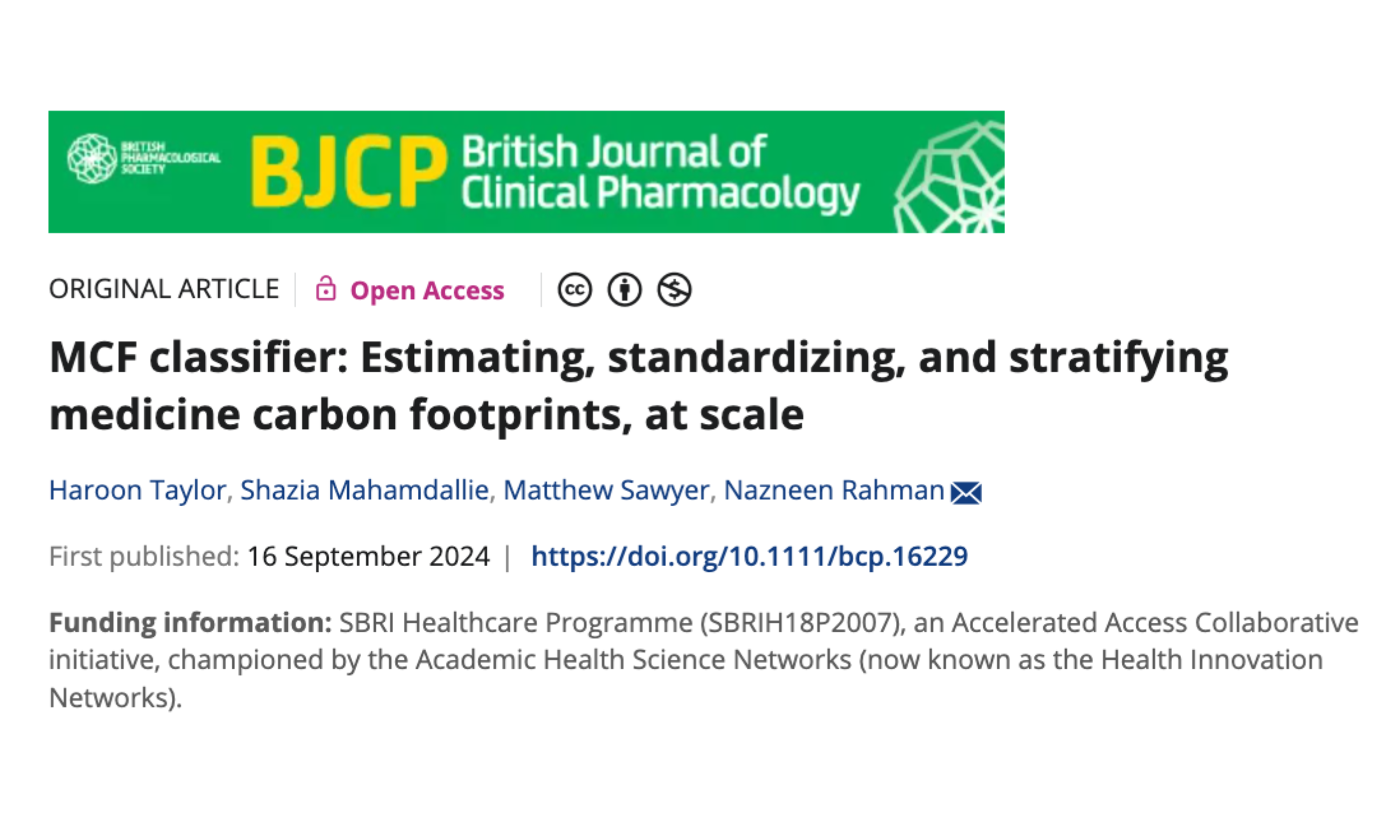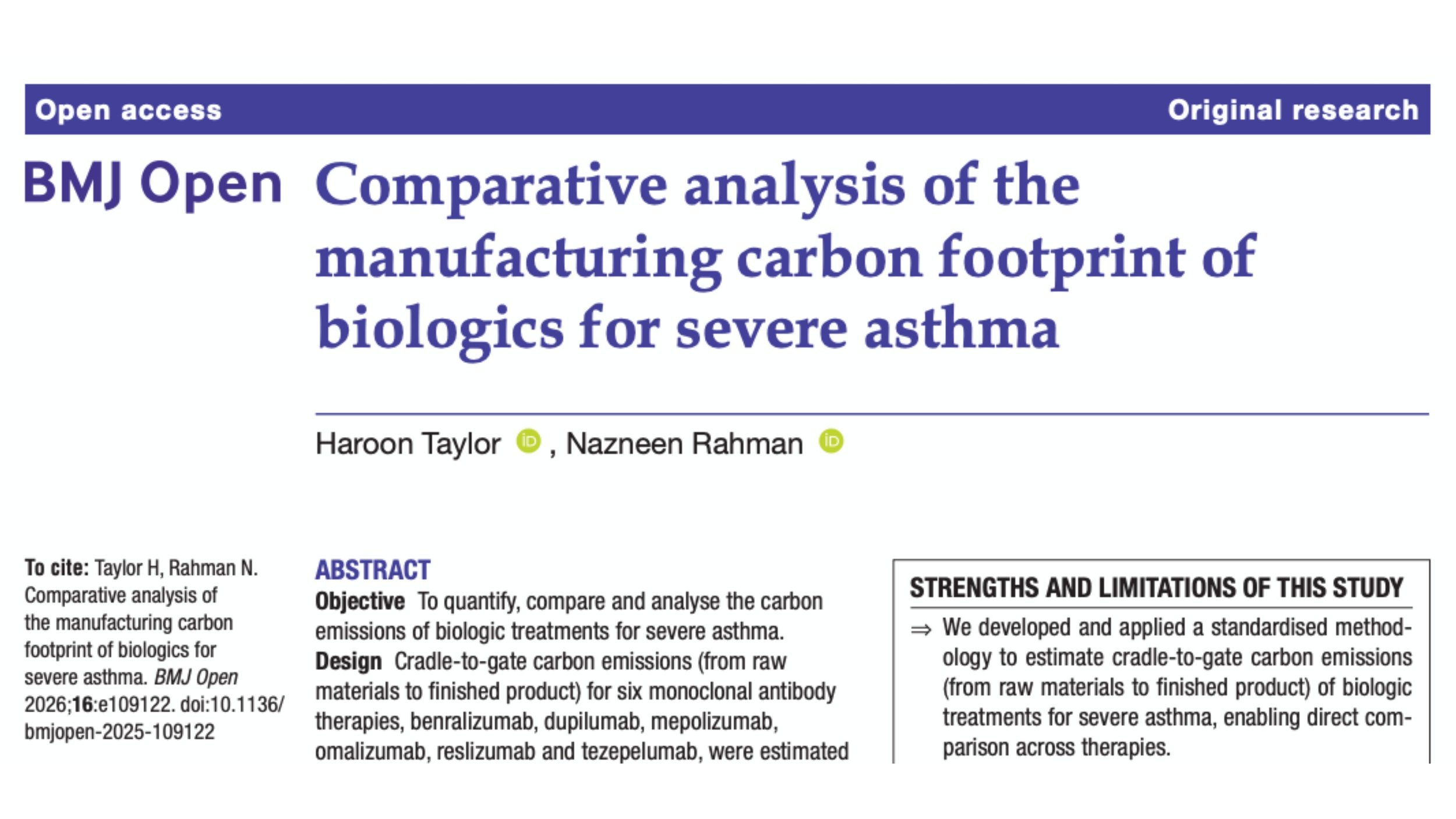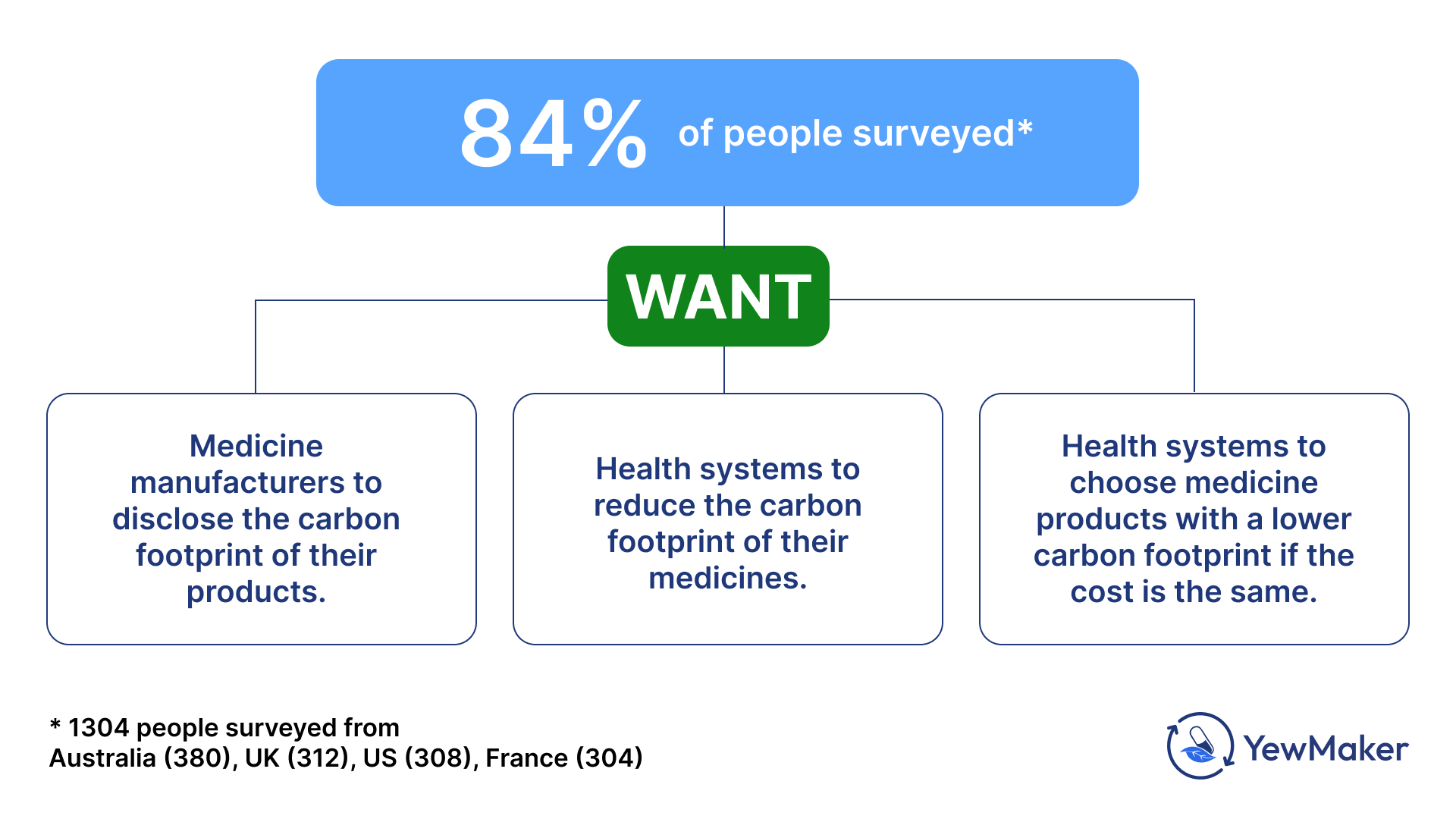Medicine Carbon Footprint Classifier is a scientifically grounded data suite designed to bring transparency and standardisation to medicine carbon emissions, powered with our published, peer-reviewed, AI-driven methodology.
MCF Classifier is already widely used by researchers, hospitals, healthcare organisations, medicine distributors, and pharmaceutical manufacturers to research, evaluate, prioritise, report, and act on reducing the carbon impact of medicines.
Medicine Carbon Emissions Data
Access standardised, cradle-to-gate carbon emissions data for thousands active pharmaceutical ingredients to empower your research, reporting, and reduction strategies.
Medicine Carbon Footprint Ratings
Search and compare per-dose medicine carbon footprint ratings for >4000 medicines in our user-friendly, online formulary. This free educational resource is designed for healthcare, pharma, and supply chain professionals.
MCF Formulary: Explore Medicine Carbon Ratings
MCF Formulary is a free, interactive tool that lets you browse and compare per-dose carbon footprint ratings for >4,000 medicines.
We hope it will inspire you to consider ways to optimise the carbon emissions of medicines.
6,694
active users
30,002
page views
“We built MCF Formulary to give everyone free access to MCF Carbon Ratings. We hope it helps people to better understand and reduce the carbon emissions related to medicines. ”
MCF Method: An AI-driven Approach to Medicine Carbon Footprints
At the core of MCF Classifier is the MCF Method, an AI-driven process that uses data science and machine learning to predict the carbon emissions of medicines.
The method is grounded in Process Mass Intensity (PMI), an industry-standard metric that is strongly correlated with global warming potential.
By integrating empirical and modelled data MCF Classifier generates standardised cradle-to-gate carbon footprints for medicines, compliant with GHG Protocol, PAS and ISO standards.
To learn more about our methods, please read our open access paper.
Research Spotlight: Antibiotic Carbon Emissions
We used MCF Classifier to conduct an analysis of carbon emissions across therapeutic categories, which showed that antibiotics accounted for 15% of emissions in our dataset, despite representing only 2% of doses.
This analysis highlights how reducing unnecessary antibiotic prescriptions can support urgent goals on healthcare decarbonisation and antimicrobial stewardship.
The recommended 20% reduction could save 4,200 tonnes of CO2e per month—equivalent to removing 29,000 cars from the road.
The analyses also showed the potential of MCF Classifier data to support research and actions that deliver better healthcare and meet net zero commitments.
“Our research identifies antibiotics as a major contributor to medicine carbon emissions, and an area where interventions can support decarbonisation and antimicrobial stewardship”
MCF Biologics: Comparative Analysis of Asthma Biologics
In our latest paper, we extend MCF Classifier principles to biologics and compare six monoclonal antibodies used to treat severe asthma.
We show an 172-fold difference in CO2e emissions; with Active Pharmaceutical Ingredient (API) quantity and manufacturer non-fossil fuel electricity proportion (22-91%) as the key variables.
Transitioning to renewable energy offers a near-term opportunity for manufacturers to have measurable impact in reducing emissions of biologics treatment.
To learn more, please read the open access paper.
Public Perception on Medicine Carbon Footprints: Key Insights
To better understand public sentiment on medicine carbon footprints we conducted quantitative and qualitative research.
Our findings highlight the growing demand for transparency and action on medicine-related emissions
We conducted an online survey, with responses from 1304 individuals across four countries, revealing remarkable consistency in their perspectives.
We next conducted in-depth interviews to better understand personal preferences for receiving information about the carbon footprint of medicines.
“Our research shows most people want more transparency and more action on medicine carbon emissions”







